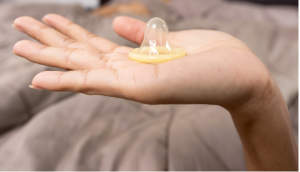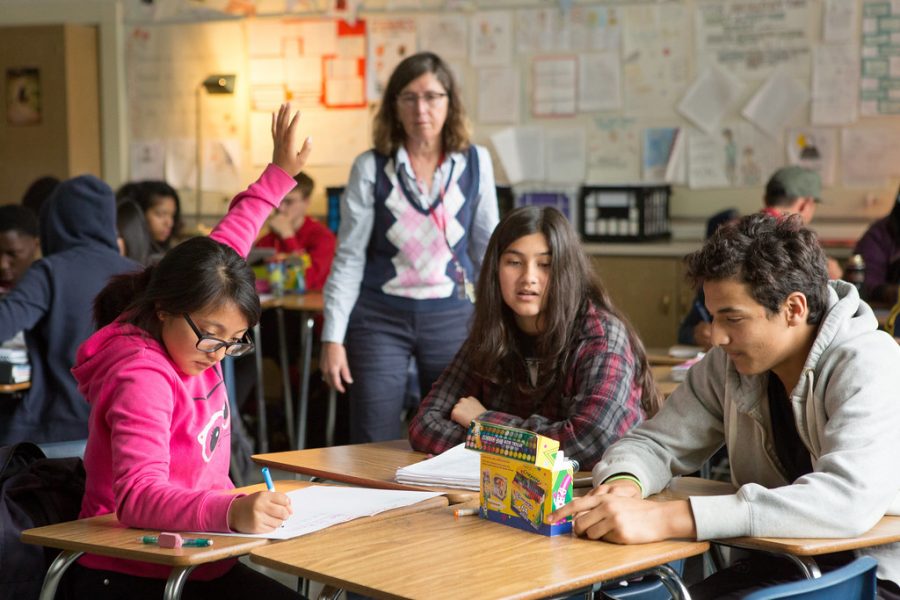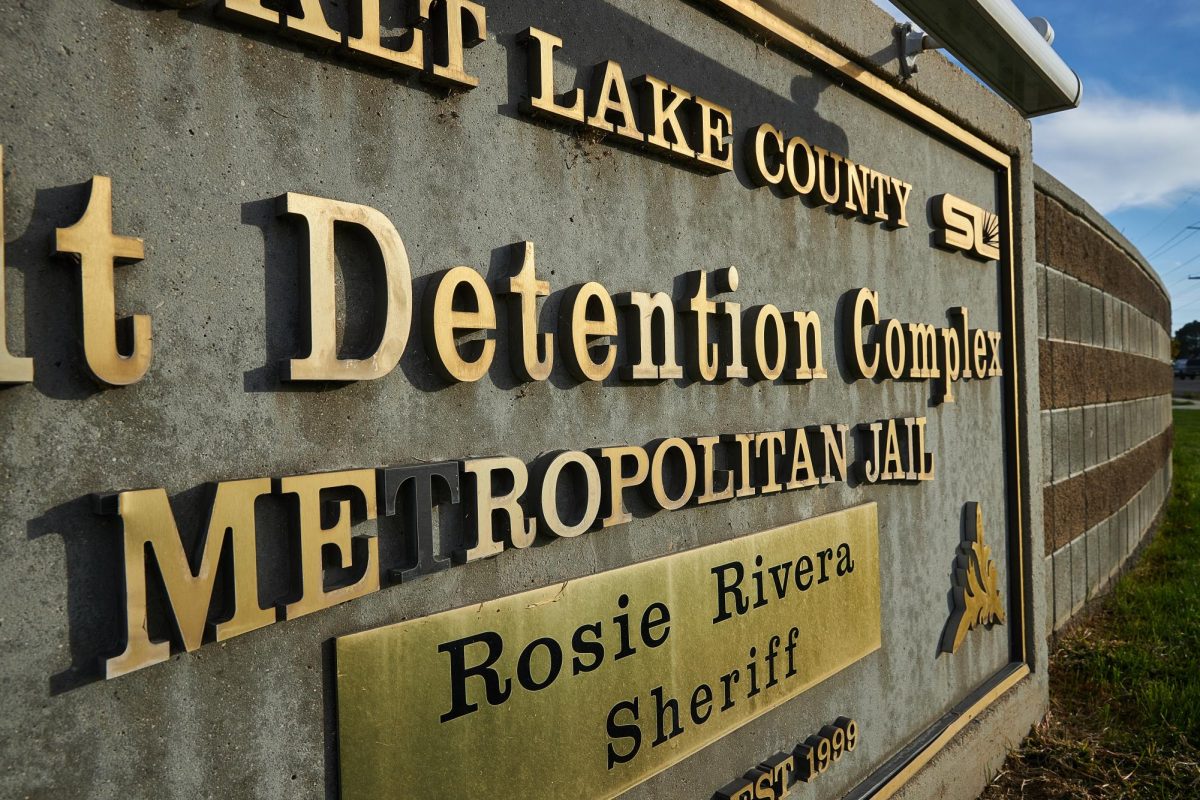Maxfield: Utah’s Insufficient Sex Education Curriculum Is Harmful to Teens
Allison Shelley/The Verbatim Age
(Courtesy Flickr)
March 7, 2020
Amidst rising incidents of sexual assault, Utah remains one of three states in the nation with an opt-in policy that requires parents to sign a consent form before their child may participate in school-provided sexual education. Yet, high school students experience sexual assault by both classmates and instructors on school campuses. As for the rising number of homeschooled students in Utah, their curriculum has no state requirements for sex education.
Parents Too Often Choose to Leave Their Teens Unprepared
Although Utah’s opt-in legislation leaves the instruction of human sexuality up to parents, this is outdated thinking that leaves many teens ill-prepared. A 2019 article from The Georgetown Journal of Gender and the Law highlights that “courts have not recognized a parental right to refuse to allow a child to complete an assigned reading or another mandatory requirement, even if the assignment is contrary to the parent or child’s religious beliefs.” Parents who prefer to teach their children at home should be required to attend a state-sponsored parenting course, providing them an overview of the missed material. Otherwise, an insufficient sex education curriculum will set their teens up for spectacular failure in terms of sexual health.
When Parents Do Opt In, the Curriculum Is Often Incomplete
Public education could also use some improvement. Strict laws govern Utah’s health curriculum, which is administered by a few dozen local education agencies throughout the state. Currently, sex education includes teaching “refusal skills” and instructs students about personal health, hygiene, communicable disease and the harms of pornography. It stresses the importance of abstinence and requires students to receive instruction on at least two occasions between grades eight and 12. However, Utah law stipulates that school boards cannot be required “to teach or adopt instructional materials that include information on contraceptive methods or devices”— and must explicitly prohibit advocating the use of contraceptives.
The Utah State Board of Education’s sex education requirements are dangerously limited and serve to keep Utah teens sexually ignorant. The twice-occurring (once in junior high, once in high school) opt-in program “usually occupies 4-6 hours of instruction.” Students who receive parental permission to participate in this sex education receive only eight to 12 total hours of training. So few hours are grossly inadequate in a state with such fast-growing incidents of sexual assault.
Educated Teens Will Still Choose Abstinence
While some express concerns about a comprehensive program, few students will become sexually active just because they have received proper sex education. As a 2017 fact sheet points out, “A large body of research has found no evidence that providing young people with sexual and reproductive health information and education results in increased sexual risk-taking.” Many students continue to choose abstinence for a variety of reasons. Teaching teens about healthy sexual practices does not encourage them to have sex, but failing to do so puts them at risk.
No Teen Should Be Endangered By a Lack of Knowledge
 Sex education is a public health concern, not simply a familial issue. According to the National Sexual Violence Resource Center, “rape costs the U.S. more than any other crime ($127 billion),” and the FBI warns “it is important to remember that crime is a social problem and, therefore, a concern of the entire community.” According to FOX 13, Utah’s rape victims outpace the national average with “49.4 cases per 100,000 residents compared with the national rate of 36.6.” While these statistics are often in flux and reports can be unreliable, we must collectively acknowledge that sexual assault is out of control in our state and look to education as a valuable resource, capable of reducing occurrences of rape in Utah.
Sex education is a public health concern, not simply a familial issue. According to the National Sexual Violence Resource Center, “rape costs the U.S. more than any other crime ($127 billion),” and the FBI warns “it is important to remember that crime is a social problem and, therefore, a concern of the entire community.” According to FOX 13, Utah’s rape victims outpace the national average with “49.4 cases per 100,000 residents compared with the national rate of 36.6.” While these statistics are often in flux and reports can be unreliable, we must collectively acknowledge that sexual assault is out of control in our state and look to education as a valuable resource, capable of reducing occurrences of rape in Utah.
Recent data also shows that an increasing number of Utah teens are contracting chlamydia and gonorrhea. These findings represent Utah’s failure to meet the needs of a growing number of adolescents. If teens were receiving alternate, risk-reducing education — beyond abstinence-only — certainly fewer would contract these diseases. A 2019 survey of registered Utah voters indicates that 68% support broadening sex education beyond an abstinence-only ideology. While abstinence is the only sure way to avoid contracting STIs, it is not the only viable prevention.
Education Should Be Flexible, But Required
Parents who refuse to consent to their child’s participation in sex education should be required to attend a parenting course where they receive detailed training material to aid them in teaching their child at home. Additionally, all high-school-age students should complete annual, online sex education tests. These tests would provide them an opportunity to demonstrate competence in the key issues facing youth: sexual boundaries, high-risk sexual behaviors, refusal skills, navigating mixed messages, the dangers of developing compulsive sexual behavior disorder and helpful community resources.
Generally speaking, teens are more sexual today than they were in earlier generations. An alarming 2011 survey by the CDC indicated that “more than 47 percent of all high school students have had sex with four or more partners.” Although the percentage may be lower in Utah, students choosing to be sexually active can do so more safely if laws are passed, providing them access to broader knowledge and better resources. It makes sense to require all high school age students to complete annual, online tests that supplement sex education because it will increase awareness and help them make more informed decisions.
A Broken Curriculum
This legislative session, S.B. 136, Healthy Lifestyles Revisions, proposes positive changes to Utah’s sex education laws. If passed, the bill would ensure that students receive instruction on “healthy relationships, including recognizing sexual assault.” The bill uncouples marriage from abstinence while stressing the importance of the latter. Significant changes allow for contraceptive instruction and the stressing of its effectiveness, limitations and risks. The bill would also require LEA reporting on the percentage of students who provide written consent for sex education.
All high-school-age students must have comprehensive sex ed and abstinence alternatives. They need to understand the risks and benefits of contraceptives, ways to catch STIs and the risks of developing CSBD. While the Campus SaVE Act “requires institutions to provide education and awareness programs to enrolled [college] students, including sexual violence prevention education,” no such federal act exists for high school students.
There is also a need to be thorough in areas other than sex education. A 2019 state amendment governs additional education for “the harmful effects of alcohol, tobacco, and controlled substances upon the human body and society.” It provides for instruction to students in each grade level — including learning how the media portrays the use of these substances. Porn is excluded from this list, despite Governor Herbert declaring pornography to be a public health hazard four years ago. The 2016 resolution is evidence that porn should be included, yet three general legislative sessions have passed, and porn is still omitted from the “harmful effects of” list.
Utahns must stop viewing sex ed as optional. Utah must revamp its sex education program if it intends to overcome the state’s current sexual assault crisis. An increased quantity and quality of age-appropriate education will prepare teens for a life of healthy sexual behavior. We must move away from a shame-focus towards a health-focus when we talk about sex. Too many adults blindly believe that teens are not sexually active. This collective ignorance hurts our youth physically, emotionally and sexually.







